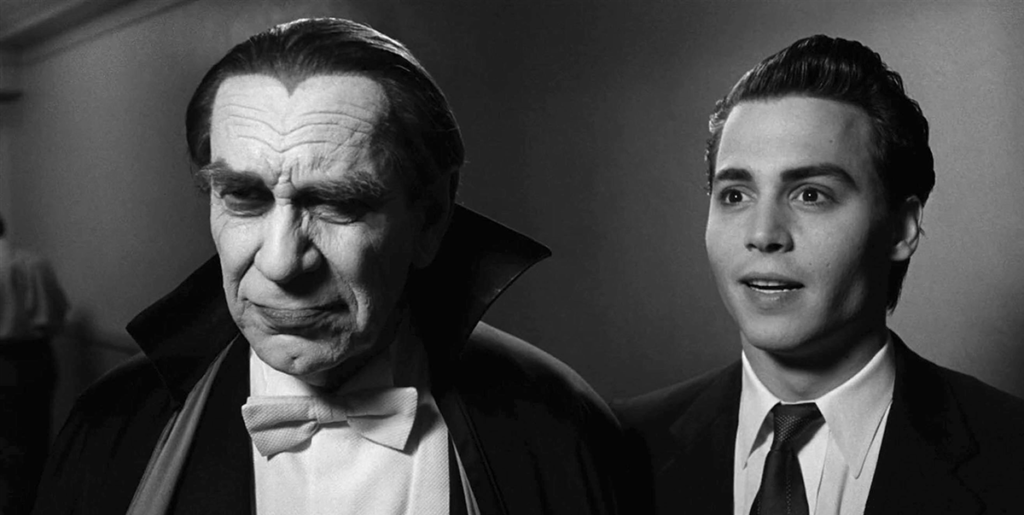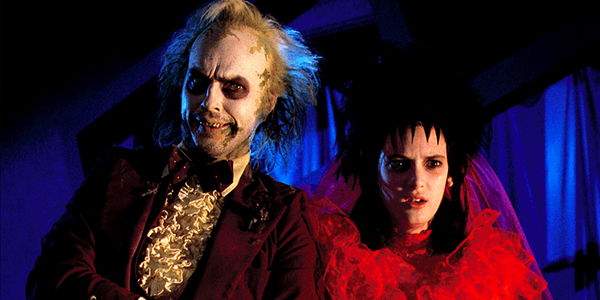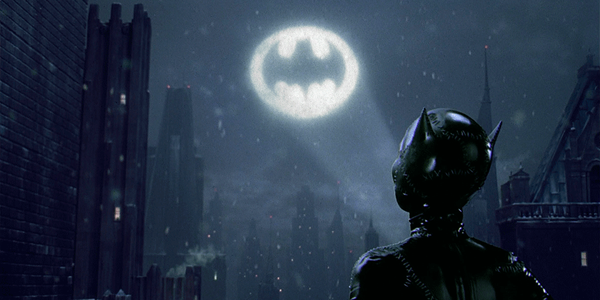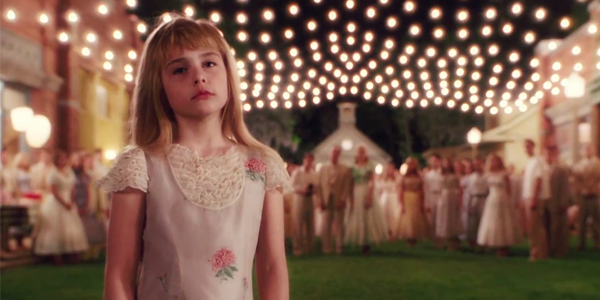also in Reviews
Sign up for our monthly newsletter
to stay up to date on Cineluxe
Unfairly slighted and neglected, Tim Burton’s best film (you read that right) still shines almost 30 years on
by Michael Gaughn
October 15, 2020
I told myself I was going to make this one a quickie and not belabor my points. So, Point No. 1—this is the only good Tim Burton movie. Point 2—it features Johnny Depp’s best performance, by far. Point 3—it’s astonishing Martin Landau did such a great job of playing Lugosi without getting much help from behind the camera. Point 4—Ed Wood died at the box office, not because it’s not a great film—it is—but because it doesn’t fit within the all too predictable definition of what a Burton film is supposed to be. And because it committed the unforgivable sin of being in black & white.
I guess this is going to take some explaining after all.
I continue to be amazed by the number of people who haven’t seen Ed Wood, and by the number who have seen it but didn’t realize Burton directed it. In an age where practically everything, no matter how inept, has its rabid fan base, there’s something fundamentally wrong about the neglect this film has suffered. It seems like its financial failure caused Burton to decide to only do “Tim Burton” films from that point on—akin to what happened after De Niro played a very Ed Wood-like Rupert Pupkin in King of Comedy. Audiences weren’t willing to accept him as anything other than “Robert De Niro,” so he was forced to be that somewhat limited character for the rest of his career.
If the points I rattled off at the top weren’t enough to get you to check this movie out, here are a few more. It’s got one of the great opening-credits sequences, which manages to capture both the feel of Wood’s movies and set the tone for what’s to come without feeling arbitrarily grafted onto the rest of the film. Beyond Landau and Depp, there are some hugely entertaining turns by Sarah Jessica Parker, Jeffrey Jones, Bill Murray, and especially Mike Starr as the head of the C-grade exploitation house Screen Classics. (The one big casting misstep is a so-meek-she’s-barely-there Patricia Arquette as Wood’s wife.)
Then there’s the writing. Ed Wood stands above Burton’s other films mainly because it’s one of the few times he’s had an exceptional script to work from—by far the best effort from Scott Alexander and Larry Karaszewski (the team responsible for the strictly pedestrian The People vs. Larry Flynt and Man on the Moon, and the inexcusable The People vs. OJ Simpson). Their portrait of Wood might not be very accurate, but it’s exactly who we need Wood to be, serving up one big fat softball after another for Depp to knock out of the park.
The movie is laugh-out-loud funny in a way Burton films rarely are. You can thank the script for most of that, but it’s more than ably realized by Depp, who displays some genius comedic chops he’s just been too cool to bother to use since; by Murray, who adds some nicely timed flourishes; and especially by Starr, who aces every scene he’s in.
The script can also claim most of the credit for the nicely modulated shifts of tone. While Ed Wood is mainly a comedy—and frequently a really broad one—it occasionally transitions deftly to drama, especially when dealing with Lugosi’s drug addiction. And it pulls off the really neat trick of not having Wood come across as just a cartoon or complete loser or clown. The actual Ed Wood doesn’t get enough credit for having tapped into the often trashy archetypes that define American culture in ways more sophisticated directors have never been able to. Wood wasn’t the worst director of all time, just the most naive.
Then there’s Stefan Czapsky’s black & white cinematography, which convincingly evokes the feel of ‘50s LA despite some lapses in direction and production design. The film looks both gritty and elegant, even in plain old HD on Amazon Prime. Besides, a color film about Ed Wood would just be absurd.
In the same way this is the best work from Burton, Landau, Depp, and Alexander & Karaszewski, it’s the only Howard Shore score I’ve ever been able to stomach. Pared down and witty, it’s an effective complement to the action and helps paper over some of the deeper sags in the mis en scène.
And, finally, Ed Wood is well worth watching because it’s one of those rare films that just feels like Halloween. While we tend to associate that holiday with shock-machine gore fests, they rarely capture the feel of the evening itself—which is one of the reasons why the studios tend to dump them on the market at the end of summer. But Ed Wood—along with Pixar’s sublime Coco—is redolent with the feel of All Hallow’s Eve.
To say Ed Wood was one of the best films of the ‘90s would border on being a slight, since that was a pretty abysmal decade for filmmaking. Better to say that it stands outside that decade, and the rest of Burton’s oeuvre, as an example of what happens when the right forces come together at the right time and somewhat magically manage to conjure up something that’s better than the sum of its parts.
Michael Gaughn—The Absolute Sound, The Perfect Vision, Wideband, Stereo Review, Sound & Vision, The Rayva Roundtable, marketing, product design, some theater designs, a couple TV shows, some commercials, and now this.
PICTURE | Ed Wood looks both gritty and elegant, even in plain old HD on Amazon Prime
SOUND | Howard Shore’s pared down and witty score is an effective complement to the action and helps paper over some of the deeper sags in the mis en scène
© 2023 Cineluxe LLC






